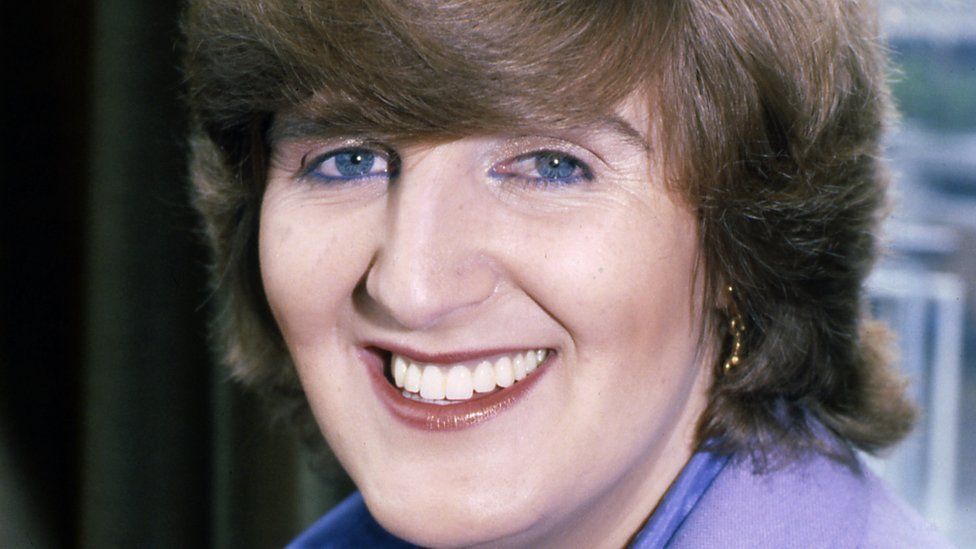Julia Grant: Transgender 'pioneer' dies aged 64
- Published

Julia Grant, the first trans woman to share her story on primetime British TV, has died at the age of 64 following a short illness.
Ms Grant rose to prominence after appearing in the 1979 BBC documentary, A Change Of Sex.
The BBC Two show, and its four follow-ups, told the story of her transition.
David Pearson, who directed the series, described her as a "pioneer" who helped start "a huge change in public attitudes towards trans people".
Ms Grant survived bowel cancer in recent years but suffered from multiple health problems in 2018 and died on 2 January.
Her brother, Gary Roberts, told the BBC she had "worked tirelessly for her community".
He added: "You could say she was a bit like Marmite, but she probably built more bridges in her community than she burnt.
"She inspired a lot of people to believe in themselves and was always there to fight the cause."
'A leader'
Speaking to the BBC, Mr Pearson added: "It's difficult if you weren't around at that time to realise how closed and secretive that whole [trans] scene was - and the gay scene to some extent.
"Essentially, overnight, she made it possible for people to understand what it was like - and she continued to do that."
LGBTQ+ rights campaigner and Manchester Liberal Democrat leader John Leech said Ms Grant had been "rightfully looked up to by many as a leader in the LGBTQ+ community, in particular here in Manchester".
Ms Grant first became involved in the BBC documentary series after contacting the broadcaster to complain about it describing a transvestite as a transsexual, she said in 2014.
After speaking to a producer on the phone, she agreed to become the subject of a film exploring the process of transitioning to Julia.
The documentary film, which eventually became a series, introduces her as catering manager George, who wishes to have gender reassignment surgery.
It followed her journey from seeking advice at Charing Cross Hospital to living as a woman socially for a year, having surgery and then her life after this point.
Almost nine million people tuned in to watch the first episode.
Trans pioneer Julia Grant speaks to a psychiatrist about transitioning in 1979
Despite some negative coverage of the show by tabloid newspapers, the response from viewers was "overwhelmingly positive", Mr Pearson said.
He added Ms Grant told him later in life that changing her gender was the "best thing she ever did".
Born in Preston and raised with five sisters and two brothers in Fleetwood, Ms Grant worked at various points as a chef, sex worker, NHS adviser, writer, ceramics teacher, bar owner, hotel owner and festival organiser. She lived in Spain, France and the Netherlands.
As well as appearing in the BBC documentaries, Ms Grant wrote two books about her life, helped set up Benidorm Gay Pride and spent time in the US counselling young people considering gender reassignment surgery.
She remained active in the trans community throughout her life, although Mr Pearson says in more recent times some of her views have become increasingly controversial. In particular she didn't agree with young children transitioning using surgery, hormones or what is now known as the "social gender role transition" in which they live in their preferred gender identify full time.
Correction 27 February 2018: This story originally said Ms Grant's opposition to children transitioning through surgery had been seen as controversial by some of her peers. It has now been amended to clarify that this controversy related primarily to her additional opposition to children having some other forms of gender realignment.
- Published2 January 2019
- Published2 January 2019
- Published31 December 2018